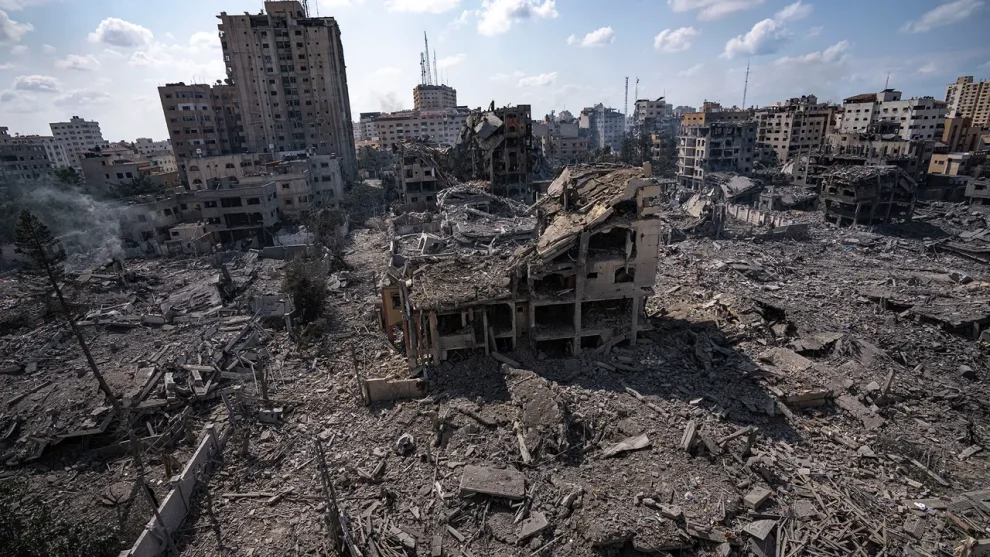The spectacle of Israelis treating the devastation in Gaza as entertainment underscores the alarming desensitization to violence and human suffering.
Israelis have been seen turning the destruction of Palestinian homes in Gaza into a disturbing form of leisure, transforming tragic events into public spectacles. This phenomenon, widely condemned as a product of dehumanization and systemic biases, reflects broader issues tied to Western support and global indifference. Addressing these actions requires challenging the deeper structural inequalities that fuel such troubling behaviors.
In a disconcerting phenomenon, reports have emerged highlighting the presence of Israeli spectators gathering to witness and even celebrate the destruction of Palestinian homes in Gaza. This spectacle, marked by scenes of cheering and photo-taking near sites of devastation, raises profound ethical and cultural questions about the normalization of human suffering as a form of entertainment.
A Disturbing Trend
Over recent years, there have been documented instances of Israelis flocking to elevated areas near Gaza to view bombings and airstrikes. Some reportedly bring binoculars, snacks, and even chairs, transforming tragic events into a form of grim leisure. Social media platforms have amplified these actions, with images and videos surfacing that showcase individuals smiling against the backdrop of plumes of smoke and ruined Palestinian neighborhoods.
This behavior has drawn sharp criticism from human rights organizations and activists worldwide, who argue that such actions trivialize the immense human cost of conflict and further deepen the already entrenched animosities between Israelis and Palestinians.
Western Civilization’s Role
The phenomenon also invites scrutiny of broader cultural and historical factors. Critics assert that this desensitization to suffering is not isolated but rather a symptom of systemic issues tied to colonial legacies and the global power dynamics that sustain them. Israel, often portrayed as a bastion of Western values in the Middle East, is perceived by some as a product of Western civilization’s political and ideological interests in the region.
The framing of such acts as “entertainment” reflects, they argue, a deeper moral failure: a normalization of violence against marginalized groups, facilitated by dehumanization and a lack of accountability on an international scale.
Impact on Gaza
The toll on Gaza is staggering. Years of blockades, airstrikes, and demolitions have reduced large swaths of the territory to rubble. Homes, schools, hospitals, and places of worship have been destroyed, displacing tens of thousands and leaving survivors to grapple with trauma and despair. For many Palestinians, these sites are not mere ruins but symbols of a struggle for dignity and survival.
The transformation of these tragedies into a form of voyeuristic tourism compounds the pain. To those who have lost family members, livelihoods, and homes, the sight of outsiders reveling in their suffering is a cruel reminder of the global indifference to their plight.
A Call for Reflection
The international community must confront the implications of such behaviors and their underlying causes. Beyond condemning individual actions, there is a need to address the structural inequalities and ideological frameworks that perpetuate this cycle of violence and dehumanization.
As the conflict persists, the question remains: What does it say about humanity when destruction becomes a spectacle? At what point does indifference evolve into complicity? These are questions not just for Israel but for the global society that enables and often overlooks such acts.
Conclusion
The scenes of Israelis gathering to witness the destruction in Gaza are a sobering reminder of the depths to which divisions can drive societies. They challenge the world to reassess its moral compass and strive for a future where empathy and justice replace indifference and violence. Until then, the ruins of Gaza will remain not just a scar on the land but on the conscience of humanity.






